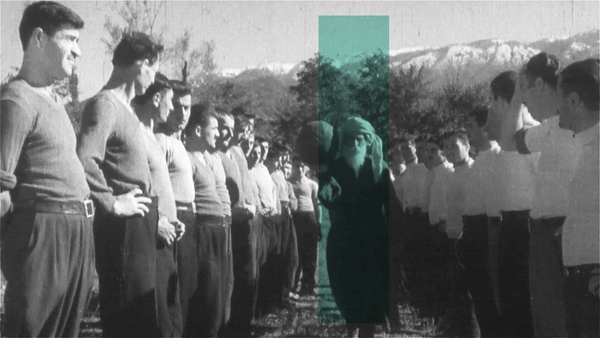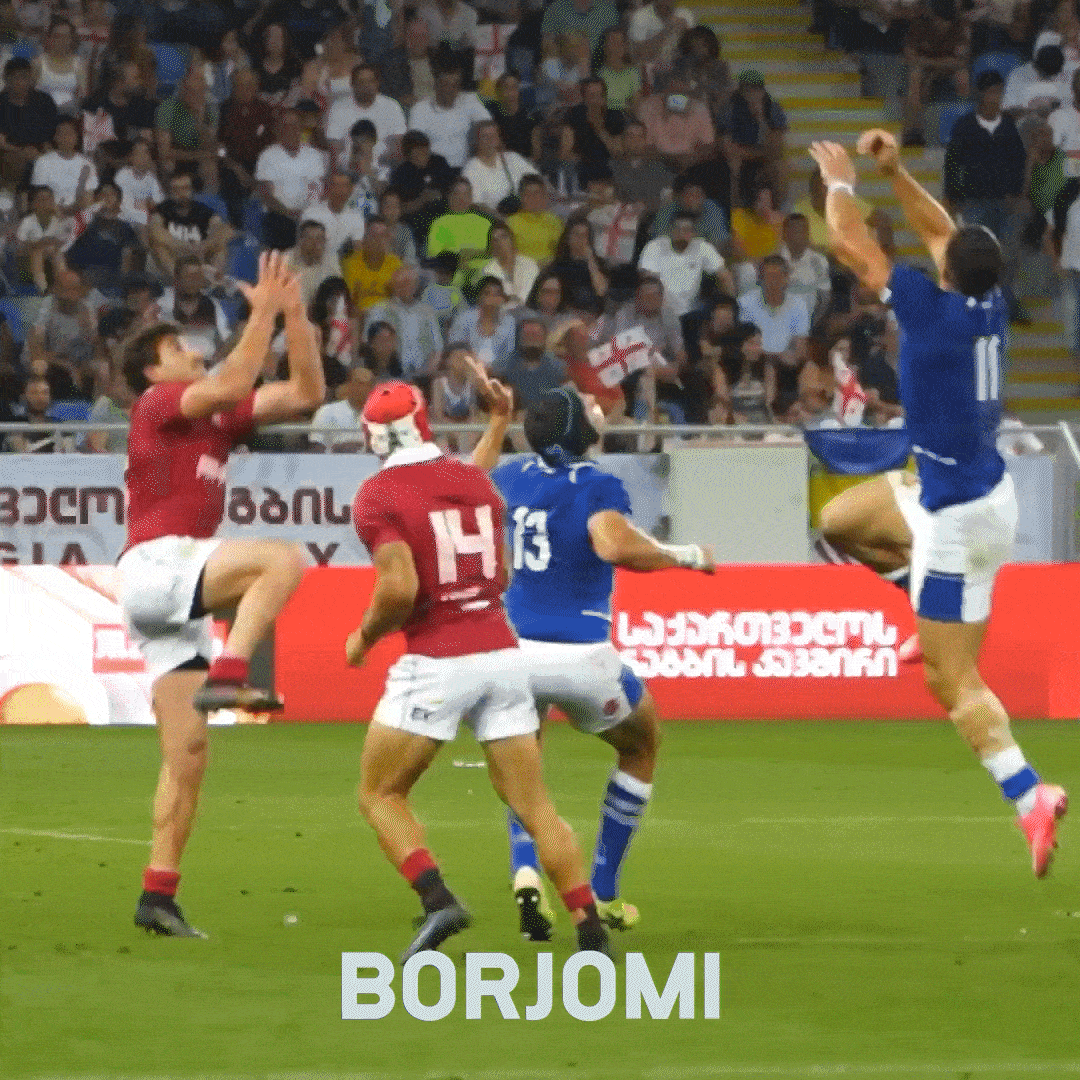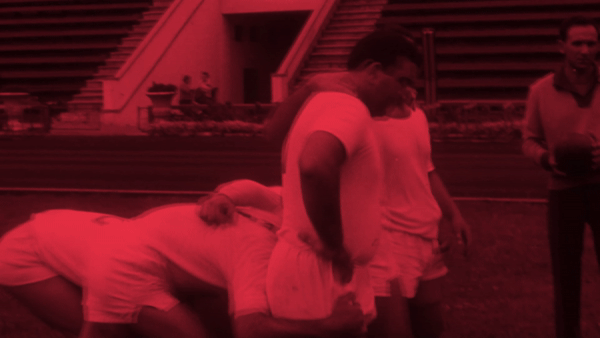
Prometheus, Webb Ellis and Erasti Tchkonia
Nineteenth century.
England.
Industrial age. A town was bustling with workers seeking employment. Meanwhile, school-age kids joyfully played football in the yard. Unexpectedly, a 16 year-old named Webb Ellis seized the ball and sprinted away.
One might have expected a brawl to ensue, but the outcome was quite the opposite. A monument was erected in honor of this young boy because his impromptu sprint became the cornerstone of an entirely new game.
The town itself came to be known as Rugby.
While official records may deny the legend today, the world cup is still affectionately referred to as the Webb Ellis Cup, and the legend continues to live on alongside it.
Nineteenth century.
Georgia.
The Imperialist Era of Russia.
The Ottoman army is preparing for a large-scale offensive.
Batumi, Anaklia, Sukhumi. Selim-Pasha's army is advancing towards Tbilisi, reminiscent of a three-headed Cerberus. Ozurgeti and Kutaisi are among the cities that need to be crossed.
Hasan-beg Tavdgiridze, who is of Georgian ethnicity, commanded the Ottoman army armed with English weapons. What's not surprising is that Georgians led not only at the highest positions but also within the ranks of the Russian Empire's army as well.
Ottomans, armed with English weapons, and Russian-Georgians with flintlock rifles clashed in the Nigoiti-Shukhuti valley. This happened just a few kilometers before reaching Lanchkhuti.
During the battle, Erasti Tchkonia severed Hasan-Beg's head with a single swing of his sword. As they say, "In hand-to-hand combat, they threw the Ottomans over the Cholok River with their fists and blows."
Thus began Lelo, a more militant form of rugby.

It is not new that similar ideas are independently conceived in various parts of the world. One scientist explained this phenomenon using an allegory: just like newborn babies develop in the same way, beginning with eating, crying, crawling, walking, and talking, humanity as a whole follows a single evolutionary path.
In the nineteenth century, it seems that evolution aimed to bring rugby to Earth.
Erasti Tchkonia and Webb Ellis played roles akin to Prometheus.
Man serves as the antenna for capturing the ideas of evolution. What emerges from this concept depends on us.
Aside from Guria, Lelo was also played in Sapichkhia, Kutaisi, during the nineteenth century.
The story of English rugby extended across the whole of Great Britain, including Scotland, Ireland, Australia, and New Zealand.
A significant wave began, and it reached us in 1959.
However, this time, the role of Prometheus was not played by Erasti Tchkonia, but by a French immigrant named Jacques Haspekian.
He founded the first rugby club at the Tbilisi Technical University.
It's not surprising that in the homeland of Lelo, rugby would take root easily as a seedling.
Georgian teams are gradually rising to become champions, with more and more people getting involved in this direction. Kutaisi also revived the Sapichkhian tradition of Leloburti, and Kutaisi's "Aya" team became the champion of the USSR three times in a row and was among the prize holders twice.
Can you imagine? The Soviet Union had not yet collapsed when our boys formed the Georgian national team. The team's first international match was played against Zimbabwe, marking the beginning of the national team's history. Just when the newly emerged country needed small victories like the air it breathes, the Borjgali began to spin.
With a powerful collision, it spun and set other mechanisms in motion upon contact. Slowly, it rekindled the hope that had rusted due to immobility and frozen in the coldness of war.
The International Rugby Council welcomed us as the 52nd member.
In 2003, we defeated Russia and secured a spot in the World Championship. It marked the first time a Georgian team had reached the world championships.
There's no doubt that rugby is our game!

The Georgian language has also embraced this fusion, with indigenous Georgian words figuratively interwoven into rugby terminology: Mgezavi, Marbieli, Lelo, Mghleteli, Abragani...
The world is a fractal entity, composed of systems, systems of subsystems, subsystems of sub-subsystems, and so on, endlessly...
No system is insignificant. The harmonious cooperation and mutual support among these systems are as crucial as they are for players on the field.
Georgia itself is a system, and its success relies on its constituent subsystems.
For us, as one of these subsystems, it is a great honor to stand on the front lines with rugby and say, forge ahead!
To spin the Borjgali faster and stronger, illuminating the country. The mention of 'light' is not accidental. As Wikipedia notes, 'Borjghal' is of Georgian origin, and its equivalent in Megrelian 'barchkhali'—meaning eye-catching shine, brightness, glare.
Who knows, perhaps Borjomi and Borjgalosnebi (Lelos) share the same root, and our friendship is not a mere coincidence.
However, you're absolutely right; when viewed from a distant cosmic perspective, neither rugby, nor Borjomi, nor Georgia may stand out. Everything converges into one pale blue dot, where we all coexist: Georgia, Webb Ellis, Prometheus, and Erasti Tchkonia.
This is likely a grander game in which we all play a part, and it can only succeed if we play our individual games with passion.
Indeed, rugby is our game—a game and a legend of our own.
In the realm of legends, every legendary hero must have a loyal friend who aids in achieving their goals. We are also such friends, assisting one another in bringing our country's name to the forefront. This friendship will become a legend, akin to that of Avthandil and Tariel, Gilgamesh and Enkidu, or Hanuman and Rama. The name is already legendary: 'Borjomi and Borjgalosnebi